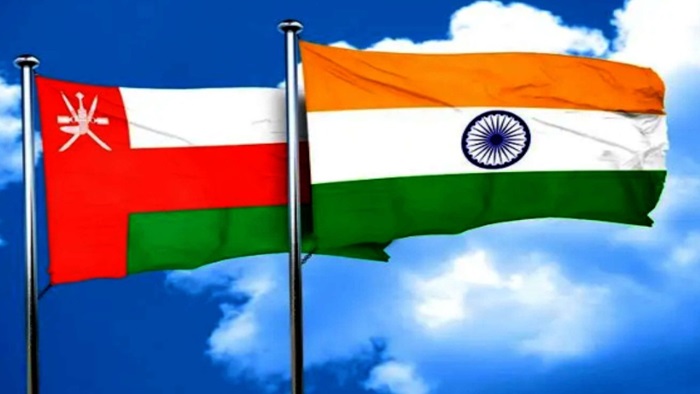
The first visit to India by the Sultan of Oman is significant for several reasons. It has been long since Oman has sent such a high level dignitary and it signals seriousness on the part of both countries to put relations on an even keel. This is particularly relevant in view of the current situation in Gaza. Ties between Oman and India go beyond energy and diaspora to encompass security domains. The visit of Sultan Haitham bin Tariq also witnessed the adoption of a India-Oman Joint Vision, a partnership for the future. The key to understanding the Sultan’s visit lies in the renewed interest in India in the Persian Gulf, both in economic and strategic terms.
The Sultan’s visit offered both sides the opportunity to discuss the challenges arising from the Israel-Hamas conflict. India’s Foreign Secretary Vinay Mohan Kwatra said while briefing journalists, that multiple challenges thrown up by the conflict in Gaza were an “important element of the discussions”, and there was a shared appreciation of the challenges that both sides face due to the conflict and “catastrophic humanitarian situation”. The two sides also exchanged perspectives on the challenge of terrorism and the need for a two-state solution as a way forward.
Both leaders held delegation-level talks and PM Modi tweeted that they reviewed the full range of bilateral ties and discussed ways to deepen cooperation in commerce, culture, defence, innovation and other issues. Speaking at the meeting of the joint delegation, PM Modi said, “Today we are adopting a new India-Oman joint vision, a partnership for the future. In this joint vision, concrete action points have been agreed upon in ten different areas. I am confident that the joint vision will give a new and modern shape to our partnership.”
“I am happy that the discussion on the CEPA agreement is going on and two rounds of discussion have been successfully completed, in which many important issues have been agreed upon. I hope that we will soon be able to sign this agreement which will add a new dimension to our economic cooperation,” PM Modi added. Terming the Sultan’s maiden State visit as ‘historic’, PM Modi said, “I am happy to welcome you to India. Today is a historic day in Oman-India relations as after 26 years, the Sultan of Oman has come to India on a state visit and I have got the opportunity to welcome you. On behalf of the people of India, I welcome you.”
At the end of the third quarter of 2023, commercial exchanges between India and Oman valued Omani Rial 1.447 billion, according to Oman;s News Agency. Bilateral trade has increased over the years and exports from Muscat to India have reached Rial 699 million, with items such as oil, minerals, LNG, polythene, propylate, aluminum and urea. India’s exports to Oman totalled Omani Rial 747 and include rice, motor fuel, gasoline, iron ore and ignition control of vehicles. Significantly, a total of 1,744 Indian companies have invested in Oman in a diverse range of areas.
Strategically, Oman has acted as the Switzerland of the Gulf region, mediating between the US and Iran, and more recently, between Russia and Ukraine. Its’ political significance lies in being geographically located at the crucial position on the Persian Gulf, making it an important staging post for extended maritime activity. Oman’s ports are useful for Indian commercial and naval shipping and all the three armed forces of India have regular exercises with their Omani counterparts. This by itself is significant as the joint vision signed by the two leaders has amongst the list of areas for cooperation, maritime cooperation and connectivity. Earlier, in 2021, both countries had signed an agreement for exchange of White Shipping information and to boost maritime security cooperation. Far away from the regular strategic interaction between India and Oman comes news of the latter qualifying for the T20I cricket World Cup to be co-hosted by the West Indies and the US next year. Prime Minister in his remarks during the visit of the Sultan noted that, “Last month, Oman qualified for the T-20 Cricket World Cup to be held in 2024. I congratulate you on this.” As India’s oldest strategic partner in the region and a close friend in India’s extended neighbourhood Oman’s significance cannot be overstated. Sultan Haitham’s visit amidst new regional challenges emphasizes the enduring nature of the strategic partnership. India views Oman not only as a diplomatic ally but also as a gateway to West Asia, fostering peace, stability, and mutually beneficial collaborations. (Al Arabiya)
